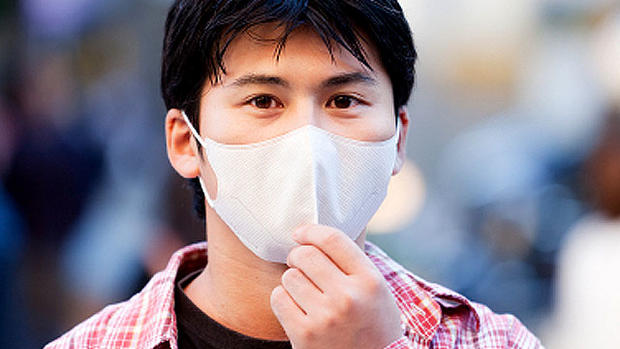Bird flu researchers fear gov't block may stall scientific progress
(CBS/AP) Scientists are worried that the government's unprecedented action to ask two top scientific journals to withhold details of upcoming bird flu studies might impede scientific progress.
PICTURES: Bird flu self-defense: 7 key questions answered
The scientists fear a chill may be descending on their field, particularly related to key studies on how viruses that normally infect birds and pigs evolve to infect people. In the short term, it may also become harder to publish any work looking at this question if it relates to the dangerous H5N1 avian flu.
The panel of biosecurity experts that advised the government on its decision may also recommend that journals agree to a short-term moratorium on publishing research about what makes H5N1 viruses more transmissible.
"We know that there is a lot of research occurring in this specific area and with every paper, the situation changes," said Paul Keim, an anthrax expert who is acting chair of the National Science Advisory Board on Biosecurity. "Setting policy in such an environment is difficult and it is hard enough already."
It's not yet clear that the biosecurity board will ask for the moratorium. Nor is it certain how journals would react to that request if it comes.
But the two journals involved in the controversy, Science and Nature, have both indicated they are at least willing to discuss a compromise, so long as a system can be devised that would give scientists and public health authorities access to the withheld information on a need-to-know basis, CBS News reported.
If the studies are published in abbreviated form, it may be a first for the life sciences. Scientists who work in nuclear physics are often unable to publish their work, for security reasons. But in most areas of science, the paradigm is that if researchers find something or achieve a goal, they must publish how they did the work so that others can try to replicate it and build on it, deterring fraud and ensuring advancement.
Scientists looking for answers that would help the world better assess the risk the H5N1 virus poses are particularly worried that the biosecurity concerns might stop them from seeking answers to questions that might tell the world how likely - or unlikely - bird flu is to adapt to human-to-human spread.
"That is an absolutely key question," says flu researcher Dr. Malik Peiris, chair of the department of microbiology at the University of Hong Kong. He said restricting this research "would be a huge loss."
Anthony Fauci, director of the National Institute for Allergy and Infectious Diseases (which funded the two disputed studies), says he'll fight to keep the biosecurity concerns from restricting science.
"I will do everything in my power to ensure that it doesn't inhibit the research," Fauci said. "The research we're interested in is the legitimate research done by scientists who have a legitimate interest."
But Dr. D.A. Henderson, who led the campaign that eradicated smallpox, thinks flu researchers have good reason to worry. "I can see where they'd be concerned about it," Henderson said. "I think we ought to be concerned about working with H5N1."
Henderson, a distinguished scholar at the Center for Biosecurity at the University of Pittsburgh Medical Center, believes the studies that drew the biosecurity board's concern should not have been done, that the risks of the work outweighed any potential benefit.
Some researchers agree with Henderson.
"This research should not have been done," Dr. Richard H. Ebright, a chemistry professor and bioweapons expert at Rutgers University, told the New York Times. "It will inevitably escape, and within a decade."
But some flu researchers disagree and say these studies had to be done to help humans one day.
"If someone makes a virus, specifically only for making it more pathogenic without learning any biology and in such a way that cannot occur in nature but can only be man-made, then I would be concerned because there is no purpose for this experiment," says Adolfo Garcia-Sastre, an influenza researcher at Mount Sinai Hospital in Manhattan.
But Garcia-Sastre insists the viruses made in the two studies that triggered this debate could occur in nature. He fears the controversy will lead to more layers of bureaucracy that will box out all but the best financed labs from doing this type of work.
Dr. Michael Osterholm, director of the Center for Infectious Diseases Research and Policy at the University of Minnesota and a member of the panel that advised the government on this decision, said the block may add a sense of urgency to the field.
"I think it will create a temporary slowdown, just because we're all going to be looking at what should be done, how should it be done and why it should be done," said Osterholm. "But in the end I think it will actually cause a great acceleration of H5N1 research. Because now that we know what we know, we can make the clear case that we need a lot more research. People can't write this (virus) off."

